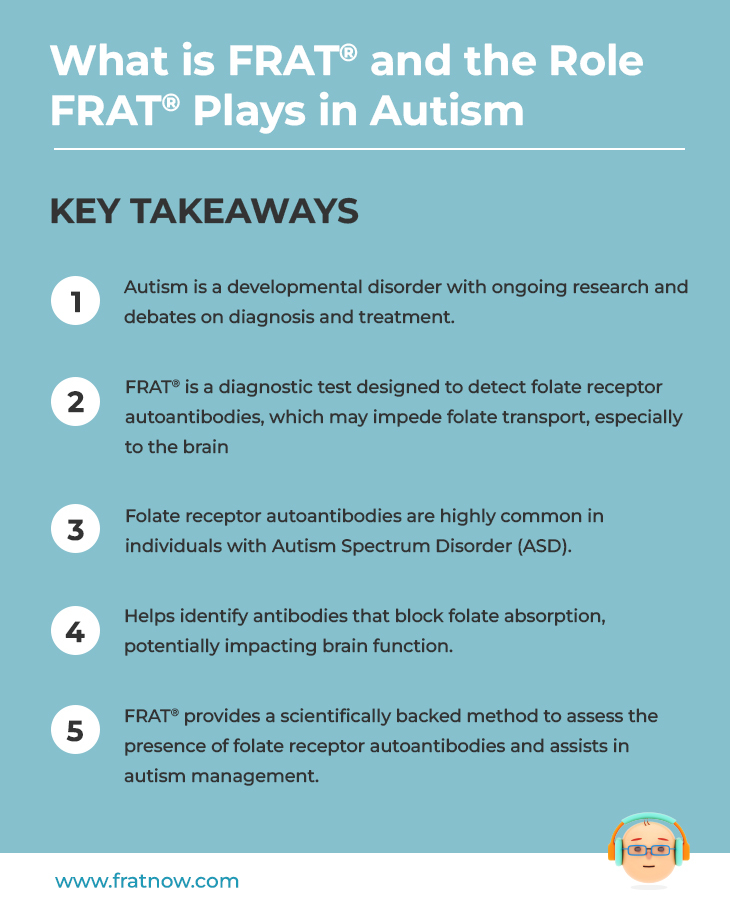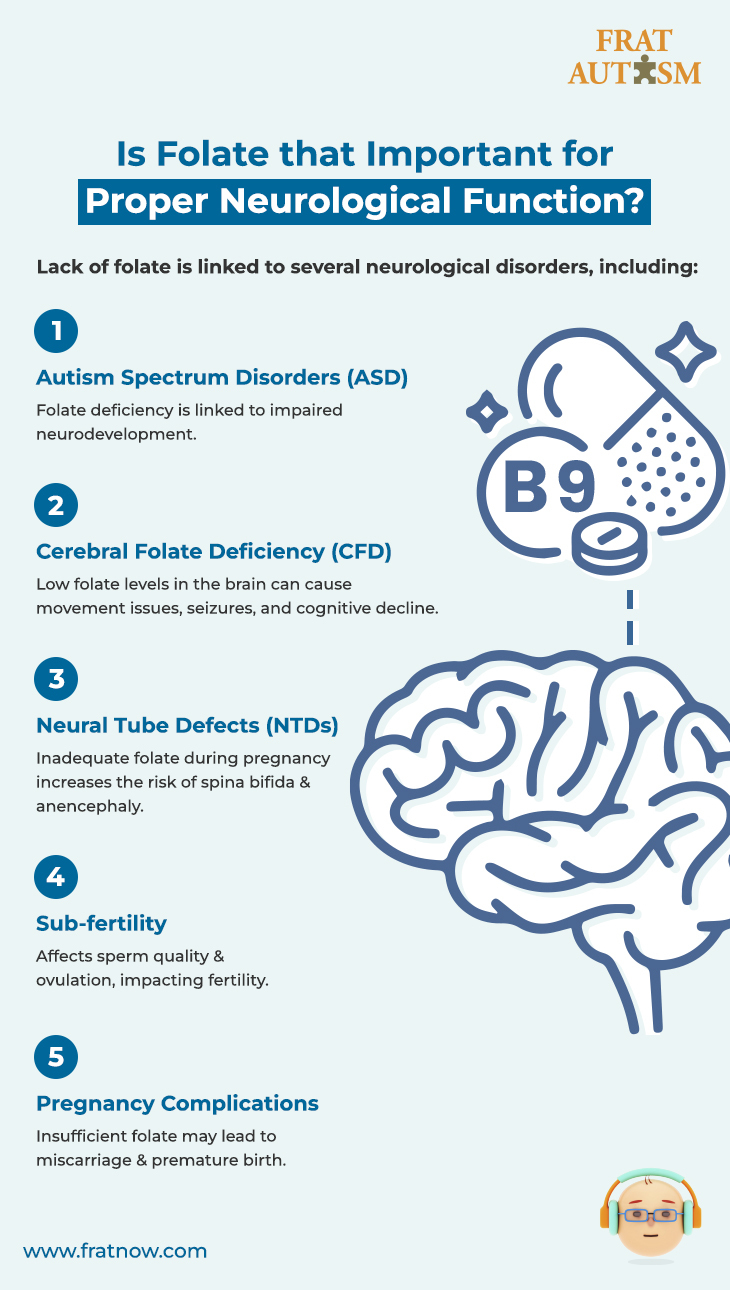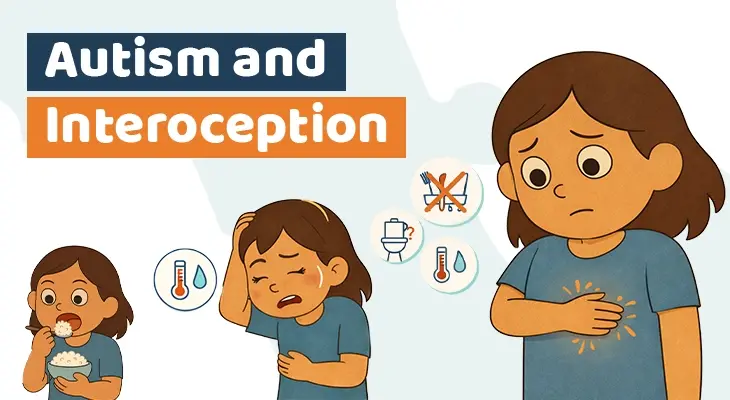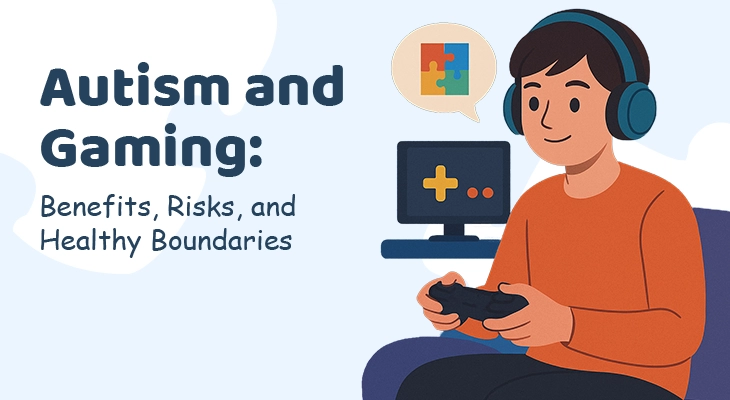
Download Download & share this Knowledge card in your network [Free Download]
Introduction
Autism is a developmental disorder that affects millions of people around the world. Despite years of research, it remains difficult to fully understand, with experts disagreeing on the best approaches for diagnosis and treatment. But now, a new conversation has begun on the topic of Autism with the emergence of FRAT®.
FRAT® stands for Folate Receptor Autoantibody Test, and it offers an innovative approach to diagnosing folate transport impediments to the brain. These folate receptor autoantibodies are highly prevalent in those that have ASD. In this blog post, we’ll take a closer look at FRAT® and the role it plays in Autism.
Defining Autism
Autism Spectrum Disorder (ASD) is a developmental disability that can cause significant social, communication, and behavioural challenges.
It’s estimated to affect 1 in 44 children in the United States and is four times more likely to affect boys than girls. While there is no single cause of autism, researchers believe it is likely caused by a combination of genetic, biomedical and environmental factors.
Common characteristics of autism include difficulty with social communication, difficulty with social interaction, and difficulty with sensory processing. People on the autism spectrum may also have difficulty regulating emotions, difficulty understanding nonverbal cues, difficulty making and maintaining friendships, and difficulty processing sensory information.
They may also have repetitive behaviours, restricted interests, and an intense focus on certain topics or activities. Asperger Syndrome (AS) is another form of autism and is often referred to as “high-functioning” autism because individuals may not display all the same characteristics as those with ASD.
How did FRAT® come to be?
Developed in 2006 by a highly skilled team of scientists, FRAT® (Folate Receptor Antibody Test) is a patented diagnostic blood test that screens for antibodies to the Folate Receptor Alpha (FRa). FRAT® is an important tool in assessing your child’s neurological health. It is a simple test with sophisticated results.
What is the significance of these antibodies that target the Folate Receptor Alpha (FRa)?
These antibodies, which are either blocking antibodies, binding antibodies, or a combination of both, impede the proper absorption of folate into critically important tissues such as the brain. Folate deficiency in the brain is common in children with autism.
What implications do Folate Receptor Antibodies have in neurological health?
The presence of Folate Receptor Antibodies suggests that folate (vitamin B9), which is an essential vitamin, is not being properly transported to the brain, thereby possibly contributing to neuro-developmental disorders such as autism.

Download Download & share this infograph card in your network [Free Download]
Is Folate that important for proper neurological function?
Yes, unequivocally so! Folate, (Vitamin B9), is essential for proper human growth and development. It is also necessary for maintaining a healthy nervous system — contributing to normal nerve maintenance and proper brain function.
Lack of adequate folate levels have been implicated in various neurological disorders such as:
- Autism Spectrum Disorders
- Cerebral Folate Deficiency
- Neural Tube Defects
- Sub-fertility
- Pregnancy complications such as miscarriage and pre-maturity
Have Folate Receptor Antibodies been found in children diagnosed with Autism Spectrum Disorders?
Yes, a large percentage of children with Autism have been found to have these antibodies.
How does FRAT® help me?
FRAT® will confirm the presence of these antibodies to the Folate Receptor Alpha, which suggests that not enough folate is being transported into the brain. Insufficient folate often can be corrected by administering active folate metabolites that bypass the blocked/ binding receptors. Consult your physician for further information on available therapeutic approaches.
Is there scientific evidence to support these statements?
Yes, there are numerous publications that detail the implications of folate receptor antibodies in a number of neurological disorders. You can find these publications at fratnow.com/publication.php
What else should I know about FRAT®?
FRAT® is a patented test that is performed in a CLIA certified laboratory. It is beneficial for children with Autism of all ages; early testing is strongly recommended.
FRAT®’s screening of antibodies offers a new pathway of knowledge for physicians and parents to manage autism.
What should I do now?
Consult your physician or visit our website www.fratnow.com for further information on how to order FRAT®
FRAT® is a critical tool in assessing your child’s neurological health.
For information on autism monitoring, screening and testing please read our blog.




